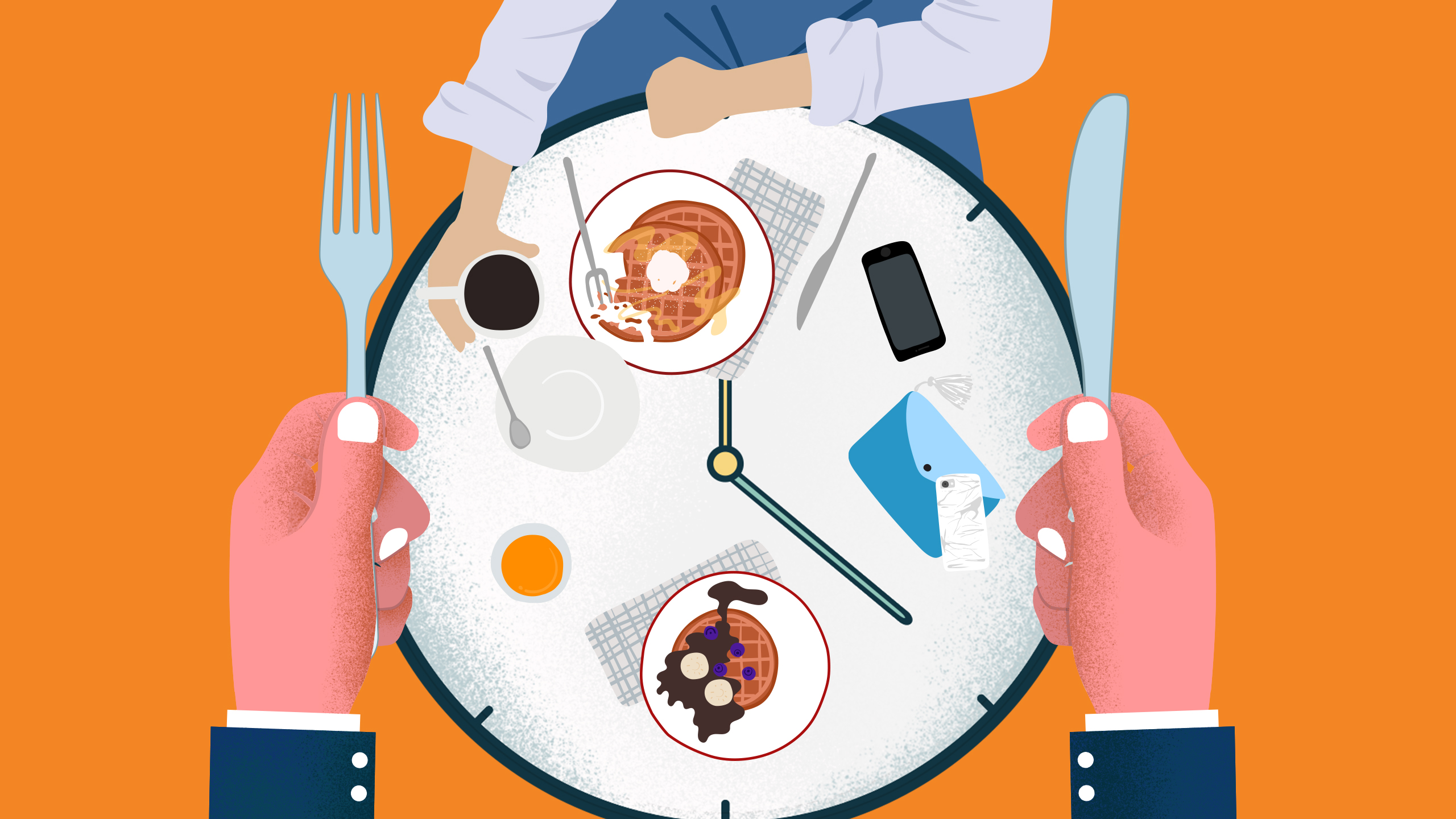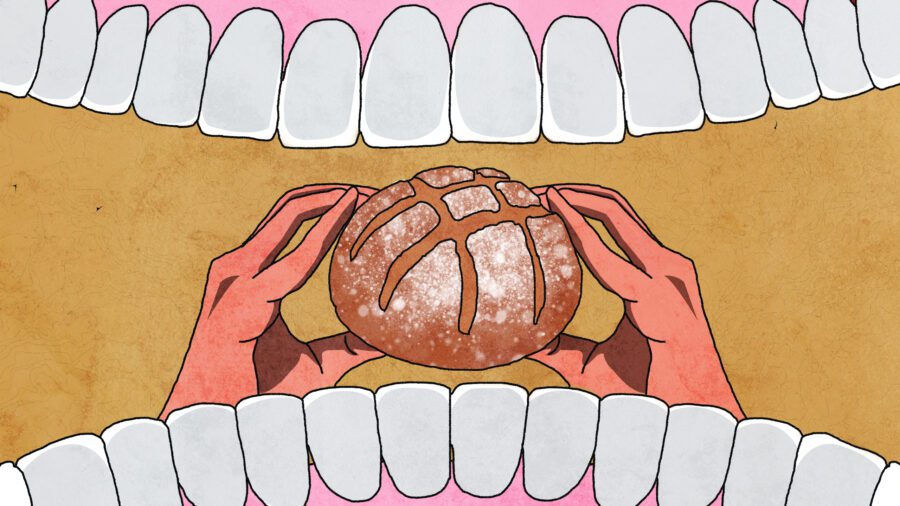
Everything You Need to Get Started with Intermittent Fasting
What comes to mind when you hear the word “fasting?”
Maybe you think of the age-old story when Jesus fasts for 40 days in the desert, or maybe it holds more of a medical context for you as it’s common to fast before having your blood drawn. Whatever comes to mind, intermittent fasting is a whole different ball game.
As intermittent fasting expert and nurse practitioner Cynthia Thurlow notes, “Intermittent fasting is not new or novel, it actually dates back to Biblical times and is aligned with how our bodies are designed to thrive. Eating snacks, mini-meals and drinking calories is one way that our bodies are no longer optimally balanced and fasting is a way to realign our health and hormones.”
And yet, most diets focus on what you eat to maintain a healthy body and weight, but intermittent fasting is all about when you eat. There’s tons of research that has been done and is being done right now on the health benefits of intermittent fasting.
However, because of its explosion in popularity, there are also several myths and misconceptions surrounding the topic that may keep you from achieving success with this method or even steer you away entirely. In this article, we explain the specifics of intermittent fasting as well as bust some of the most common myths people believe about this diet.
What Exactly Is Intermittent Fasting, and Why Does It Work?
Intermittent fasting is a diet trend that has gained legs in the last few years as a popular and effective method for weight loss. The idea is that you alternate between periods of eating and fasting throughout the week. Your body actually already does this when you sleep, but the diet expands on this normal fasting window by making the fasting period longer or by alternating days between fasting and eating throughout your week.
There are multiple approaches you may take with this diet. For example, there is the 5:2 strategy (5 days of unrestricted eating followed by two days of fasting), the 18:6 (18 hours of fasting with a 6-hour window of eating), and many other similar variations. Depending on which approach you take, it’s not uncommon to incorporate other dietary restrictions like the keto diet or vegan eating. You’re really at liberty to add or not add whatever additional restrictions you like — the most important aspect is following the time guidelines.
The most common reason why people utilize this diet strategy is weight loss, but there is actually research that shows intermittent fasting improves cognitive ability and brain function as well as reduces cardiovascular stress, lowers blood sugar, promotes self-healing, improves gut health, and makes your metabolism more adaptable. With so many health benefits, it’s hard to believe this is just a diet strategy!
However, as is the case with many trends that explode in popularity, misinformation begins to spread before long.
9 Common Myths About Intermittent Fasting
So how do you know what’s the truth and what isn’t when starting this diet? It can be hard to differentiate between fact and fiction online, so here are the most common myths about intermittent fasting that have been proven to be untrue.
1. You Have to Skip Breakfast
The reason why this myth has stuck around is that many people intentionally schedule their eating windows for later in the day to line up with their own body’s hunger clock and social life. This absolutely doesn’t mean you need to do the same, and it certainly doesn’t mean you should skip breakfast. Instead, develop an eating schedule that works for your body and life and stick to it. If you’re within your window for eating, go out and enjoy dinner with friends without breaking any dietary rules!
2. Intermittent Fasting Is a Miracle Cure for Weight Loss
While it’s true that many people achieve success losing weight with this dieting strategy, it isn’t guaranteed. Ultimately, what causes you to lose weight is burning calories. So, if you are ingesting more calories in your eating window than what you can burn in a day, you are not going to lose weight. You must ensure you are not exceeding your daily caloric intake in your allotted window for eating.
Keep in mind, weight is not always a perfect reflection of health, and BMI was a tool that was created to assess weight in specific populations, not individual people. Always speak with a medical professional about your health and weight, and remember that all bodies are different.
3. There’s Only One Type of Intermittent Fasting
There are actually many different strategies for IF (intermittent fasting), ranging from eating multiple meals per day to fasting for more than 24 hours. TRE, or time-restricted eating, is the most common approach which maintains that you follow a schedule between eating and fasting. As previously mentioned, some examples of TRE are the 16:8 and 18:6 methods (hours of fasting followed by a window of eating).
Join In 200 Million+ On The Journey to Greatness
4. Both Men and Women Can Fast the Same Way
IF and nutrition expert Cynthia Thurlow busts this myth for us: Men and women actually need to fast differently. Thurlow explains this is because we have such unique physiologies that need to be taken into account. Women, up until menopause, cycle with fluctuating levels of progesterone, estradiol and testosterone each month. As a result, there are times during the month where women should fast and times they should not. Men and menopausal women, generally speaking, have an easier time with fasting, largely due to the fact that their hormonal fluctuations are not of issue.
5. IF Is Perfect for Everyone
Intermittent fasting can be a great tool to utilize, but to say it is the perfect regimen for everyone to follow would be a massive overstatement. There are various reasons why IF may not be right for some individuals. People who have suffered from eating disorders in the past may not be the right candidate for IF as it could encourage them to engage in dangerous or unhealthy eating patterns. Pregnant or breastfeeding women should also not engage in any form of fasting as it is not beneficial for a child in their developmental years. Always include your doctor in any plans you have concerning your health or change in diet.
6. Eat Anything You Want During Your Eating Window
If you’ve gone all day without eating, you’re probably craving your favorite snacks and junk food when the clock strikes the hour for you to start eating — don’t give in! Your eating window doesn’t mean you get to indulge in everything you want during that time, but rather sustain a balanced and nutritious diet. This doesn’t necessarily mean you have to abstain from gluten or dairy if your body doesn’t need to, just make sure you’re not exceeding your daily caloric intake and hitting all the foods in the food pyramid!
7. IF Will Impair Your Mental Focus
This myth has a simple explanation: If you start intermittent fasting by going 24 hours without food, you will likely experience hunger pangs and a drop in mental alertness because your body is accustomed to your normal eating routine. You may, in fact, feel more cranky or irritable upon starting fasting. It may even take up to two weeks for your body to fully adjust to the new routine, but many people stick with it because they notice they feel better. It’s important to start slow and give your body time to adapt to this new routine. Dietitians recommend those who are just starting IF try a 12-hour fast first.
8. IF Causes Your Body to Go into Starvation Mode
There is actually no specific threshold for when your body enters starvation mode, but scientists are sure it takes longer than a day. The most common IF strategies follow a fasting period of no more than 16 hours, so it can be deduced that short-term fasting is a safe approach. As is the case for all things health-related, consult with your doctor if you have any reservations concerning fasting. All bodies require different things, so take it slow and listen to your body. Find out what works for you and gives you the results you want without detracting from your happiness and well-being.
9. Drink Less Water While Fasting
Under no circumstances should you deprive your body of water, especially if you are fasting. Many people use meals to drink the water they need for hydration, so without consistent meals in your day, you may forget to drink water. Drinking the necessary daily amount of water is difficult enough as it is — many people struggle to drink just 6 glasses per day — so be sure you are hydrating throughout the day and not just during your eating windows.
Is Intermittent Fasting Safe?
If the idea of going without food for hours at a time is intimidating to you, you’re not alone. Human bodies have evolved to go without food for long periods of time since we used to be hunter-gatherers in prehistoric times.
Obviously, we no longer have to forage or hunt for food, so human eating habits have evolved alongside our society. No longer are we constantly burning calories or eating only during daylight. Near-limitless access to any food we want and 24/7 entertainment via television or the internet creates an atmosphere of mindless and constant eating throughout the day and night. More calories and less activity mean you run the risk of obesity, type 2 diabetes, and a whole host of other illnesses like heart disease.
Zero is a great intermittent fasting app that you can use to track your time windows and caloric intake as well as find tons of useful tips on other IF topics.
Intermittent fasting is safe, provided you are not among the group of individuals who should avoid it, follow all the guidelines correctly, and move at a comfortable pace. There is solid evidence to suggest short-term fasting paired with a healthy diet and active lifestyle are effective ways to achieve weight loss.
If you feel like IF might be the perfect fit for you, there’s no better time than now to give it a shot! Just remember to listen to your body and consult with a medical professional if you have any questions!
Greatness Authors
Greatness Authors is a collection of writers, thinkers, curiosity experts, and students of the world who are committed to bringing you the most up-to-date, impactful, and inspiring information surrounding Greatness topics.

Do You Have to Be a Morning Person to Be Successful? Here’s What Both Sides Have to Say

9 Reasons You’re Tired All the Time & How to 10x Your Energy

How to Have a Healthy Romantic Relationship Even if You Share Different Beliefs

The 7 Best Vitamins to Naturally Promote Better, Uninterrupted Sleep According to Shawn Stevenson

The Science of Forming Healthy Habits & Letting Go of Bad Ones, According to Author James Clear












